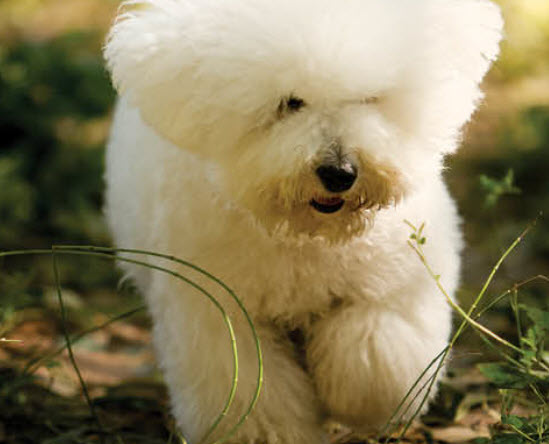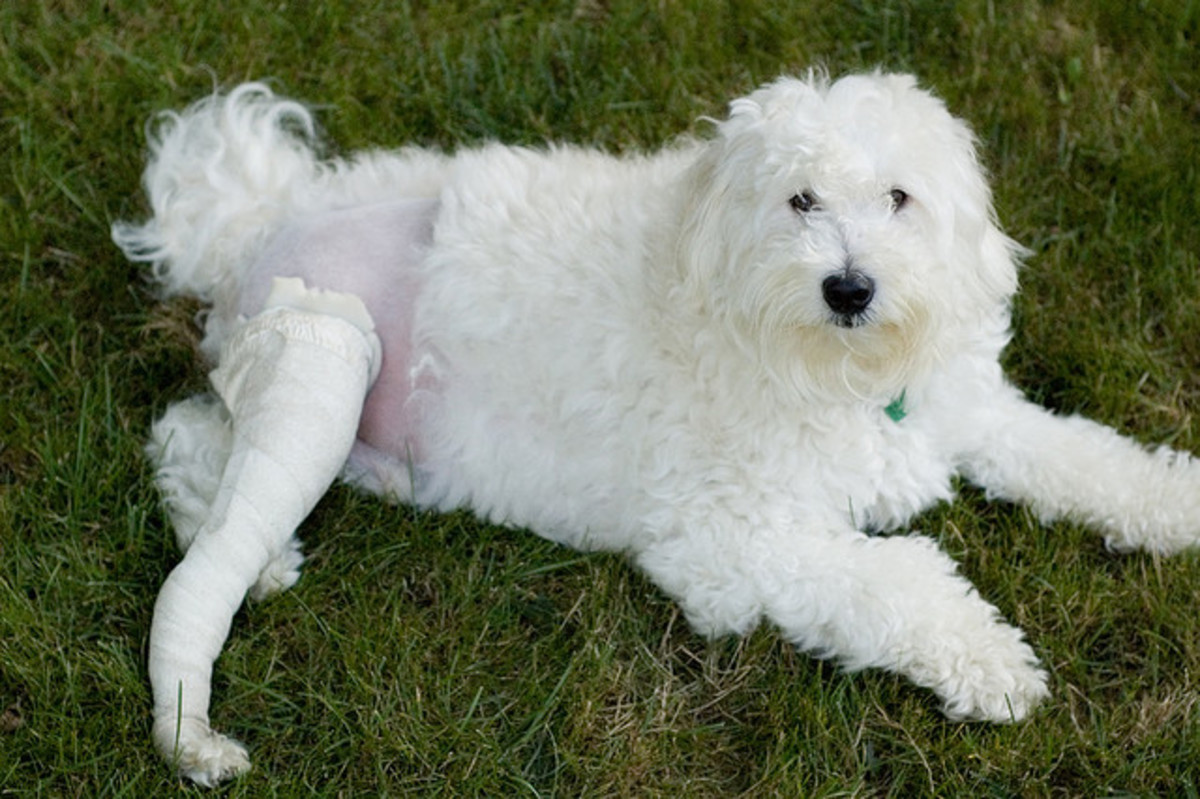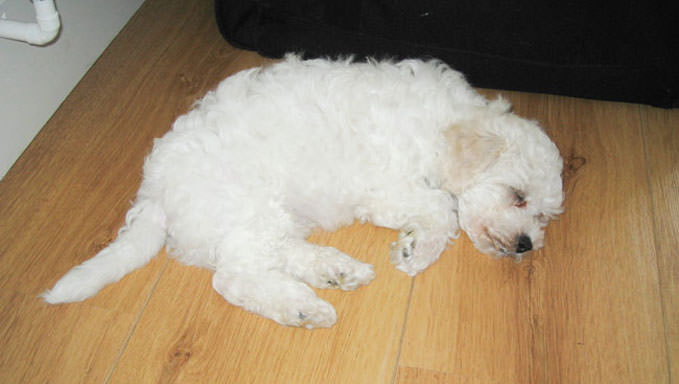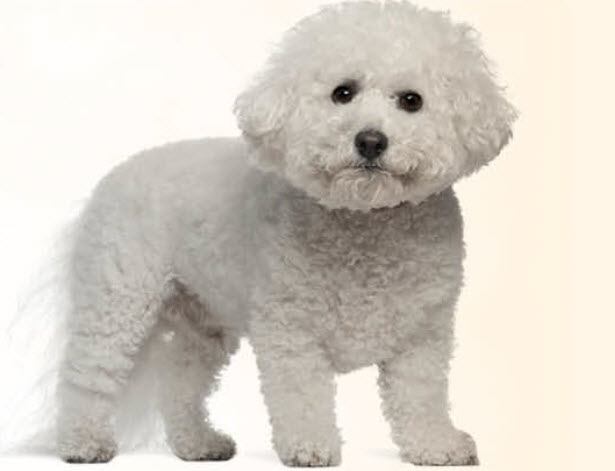Bichon frise knee problems
Home » Poodle Parent » Bichon frise knee problemsBichon frise knee problems
Bichon Frise Knee Problems. Patellar luxation commonly referred to as trick knees affects many small breeds and is common in the bichon. It was clear that there was a lot of inbreeding going on in Lous past. Bichons also get back problems discs from the jumping on and off of furniture. You might notice that he runs along and suddenly picks up a back leg and skips or hops for a few strides.
 Bichon Frise Noah S Ark Veterinary Hospital From noahsarkvet.com
Bichon Frise Noah S Ark Veterinary Hospital From noahsarkvet.com
Of course not all Bichon Frise will develop any or all of these health issues. Make sure they are drinking plenty of water to keep the joints lubricated also. Sometimes your Bichons kneecap patella may slip out of place called patellar luxation. Kidneys and Urinary Tract Issues. As stated earlier this is by far the most frequent orthopedic problem and surgery in Bichons. The patella is the kneecap part of the structure of the stifle knee joint.
The patella commonly referred to as the knee cap is usually located in the centre of the knee joint.
Kidneys and Urinary Tract Issues. Occasionally Bichons suffer hip dysplasia but this condition occurs more often in large breeds while patellar luxation is more common in small breeds as is Legg-Calve-Perthes Disease. The hip joint is actually a ball and socket joint and this disorder results when the ball doesnt fit inside the socket. Bichons also get back problems discs from the jumping on and off of furniture. The Bichon with a lifespan of about 12 to 15 years is prone to some serious health problems like hyperadrenocorticism allergies and patellar luxation or from less serious conditions like cataract and canine hip dysplasia CHD. Veterinarians recommend having a dog breed Bichon Frise with hip dysplasia knee dysplasia and eye problems.
 Source: noahsarkvet.com
Source: noahsarkvet.com
This is a genetic disorder that occurs and disturbs the hip joint. Sometimes your Bichons kneecap patella may slip out of place called patellar luxation. It can be seen when the dog is around six months of age or when older if the condition is mild. There were a lot of repeating names on that certificate. Statistically it has been noted that the majority of dogs suffering one torn knee ligament will have a similar event within a year in the other knee.
 Source: mydogsymptoms.com
Source: mydogsymptoms.com
In addition to eating things we dont even want to touch Bichon Frises can develop digestive problems for other reasons like pancreatitis. The major concern for the Bichon Frise is the patellar luxation or when the kneecap is out of place. Playful active behaviour Bichon Frise easily meet in ordinary urban setting given the small size and short legs of the dog. There were a lot of repeating names on that certificate. Then he kicks his leg out sideways to pop.
 Source: pethelpful.com
Source: pethelpful.com
Of course not all Bichon Frise will develop any or all of these health issues. The patella becomes dislocated when there is an abnormality in the stifle or knee joint. You might notice that he runs along and suddenly picks up a back leg and skips or hops for a few strides. As a result the weakness occurs that limits the mobility of your pet and also causes severe pain. Although not all inherited diseases can be detected early some breeders.
 Source: vetstreet.com
Source: vetstreet.com
Statistically it has been noted that the majority of dogs suffering one torn knee ligament will have a similar event within a year in the other knee. Legg-Perthes and liver disease may also affect the breed. Other concerns in the breed are urinary problems and bladder stones along with loose knee joints that may require surgery ear infections cataracts diabetes heart disease. The kneecap which is called the patella normally glides along a natural groove in the femur bone at the knee joint. The patella commonly referred to as the knee cap is usually located in the centre of the knee joint.
 Source: noahsarkvet.com
Source: noahsarkvet.com
The abnormality of the joint allows the kneecap patella to slip out of place or become dislocated. Then he kicks his leg out sideways to pop. Playful active behaviour Bichon Frise easily meet in ordinary urban setting given the small size and short legs of the dog. I suggest you not wait to see if it. You might notice that he runs along and suddenly picks up a back leg and skips or hops for a few strides.
 Source: iheartdogs.com
Source: iheartdogs.com
Bichon Frise is a typically healthy breed but similar to any pure-breed they are prone to some common health problems. Bichons also get back problems discs from the jumping on and off of furniture. You might notice that he runs along and suddenly picks up a back leg and skips or hops for a few strides. Veterinarians recommend having a dog breed Bichon Frise with hip dysplasia knee dysplasia and eye problems. It pays to repair the knees early before a tear occurs and to repair both if they are loose.
 Source: noahsarkvet.com
Source: noahsarkvet.com
The patella becomes dislocated when there is an abnormality in the stifle or knee joint. The Bichon with a lifespan of about 12 to 15 years is prone to some serious health problems like hyperadrenocorticism allergies and patellar luxation or from less serious conditions like cataract and canine hip dysplasia CHD. If they have been active doing the jumping then eventually they will have problems. Bichon Frise is a typically healthy breed but similar to any pure-breed they are prone to some common health problems. There were a lot of repeating names on that certificate.
 Source: simplydogowners.com
Source: simplydogowners.com
The symptoms depend upon the severity and persistence of the condition as well as the amount of arthritis involved. Then he kicks his leg out sideways to pop. It pays to repair the knees early before a tear occurs and to repair both if they are loose. Occasionally Bichons suffer hip dysplasia but this condition occurs more often in large breeds while patellar luxation is more common in small breeds as is Legg-Calve-Perthes Disease. In a dog who has patellar luxation the.
 Source: aubreyamc.com
Source: aubreyamc.com
Bichon is considered a very healthy breed but to ensure healthy offspring responsible breeders will first choose sires and dams that have solid temperaments and which at a minimum have been tested for healthy eyes hips and patellas knee caps. Your Bichons urinary system works to get rid of wastes in her body and it also is responsible for balancing the water and electrolytes salts in her body. I have a bichon-poodle too and he has luxating patellas in his hind knees his kneecaps move in and out of place constantly. It was clear that there was a lot of inbreeding going on in Lous past. A luxating patella is a knee cap that moves out of its normal location as indicated by.
 Source: noahsarkvet.com
Source: noahsarkvet.com
It pays to repair the knees early before a tear occurs and to repair both if they are loose. Other concerns in the breed are urinary problems and bladder stones along with loose knee joints that may require surgery ear infections cataracts diabetes heart disease. You might notice that he runs along and suddenly picks up a back leg and skips or hops for a few strides. Occasionally Bichons suffer hip dysplasia but this condition occurs more often in large breeds while patellar luxation is more common in small breeds as is Legg-Calve-Perthes Disease. Patellar luxation occurs when the knee joint slides in and out of the knee socket which results in a lame walk and a lot of pain for your pup.
 Source: adelaidevet.com.au
Source: adelaidevet.com.au
Of course not all Bichon Frise will develop any or all of these health issues. Instead he has a lot of skin allergy issues. He had surgery in January of 2013 to try to correct it but it didnt work unfortunately. As stated earlier this is by far the most frequent orthopedic problem and surgery in Bichons. The abnormality of the joint allows the kneecap patella to slip out of place or become dislocated.
 Source: dogtime.com
Source: dogtime.com
The Bichon with a lifespan of about 12 to 15 years is prone to some serious health problems like hyperadrenocorticism allergies and patellar luxation or from less serious conditions like cataract and canine hip dysplasia CHD. I have a bichon-poodle too and he has luxating patellas in his hind knees his kneecaps move in and out of place constantly. Then he kicks his leg out sideways to pop. Allergies cause your Bichon Frise to scratch and chew himself into horrendous skin conditions. This dog breed is known to develop epilepsy and slipping kneecaps.
If you find this site adventageous, please support us by sharing this posts to your favorite social media accounts like Facebook, Instagram and so on or you can also bookmark this blog page with the title bichon frise knee problems by using Ctrl + D for devices a laptop with a Windows operating system or Command + D for laptops with an Apple operating system. If you use a smartphone, you can also use the drawer menu of the browser you are using. Whether it’s a Windows, Mac, iOS or Android operating system, you will still be able to bookmark this website.
